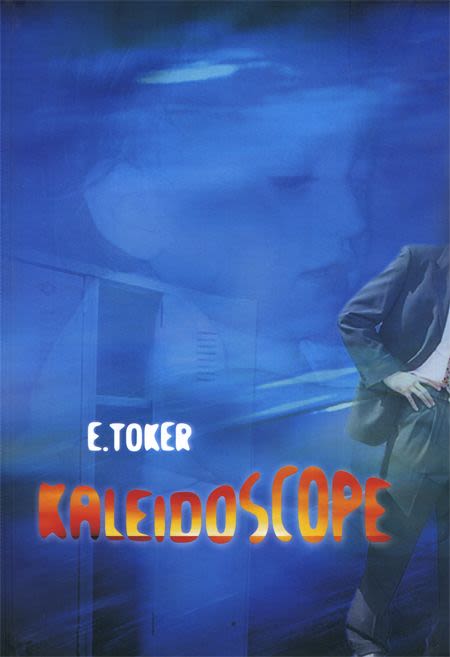
The Words of a Tzaddik Bring Life
The power hidden in every word a tzaddik utters is awesome: each person can find in them specific advice for the rectification of his soul.

The power hidden in every word a tzaddik utters is awesome: each person can find in them specific advice for the rectification of his soul.
Rebbe Nachman said that with his ordinary conversation, he could lift a soul out of the seventh level of Hell and bring him into Gan Eden (Chayei Moharan 298). [Chayei Moharan II, “The Greatness of His Followers.”]
The power hidden in every word a tzaddik utters is awesome: each person can find in them specific advice for the rectification of his soul. Reb Nosson wrote of several occasions on which Rebbe Nachman gave a lesson, and each individual present felt himself being personally addressed. Each one found relief for his own troubles in the Rebbe’s words (Ibid. Conversations on Lesson 2). There is even a story about one particular chassid who was suffering from a terrible infection; even the doctors had abandoned hope of his recovery. During one of his lessons, Rebbe Nachman discussed the process of healing and its spiritual implications. At that very moments, in another town where the man lay bedridden, the wound burst open and the infection flushed itself out (See Parparos l’Chochma on Likutey Mohoran II:4,12).
There are many similar stories in Breslov literature. More than once, Reb Nosson expressed amazement at Rebbe Nachman’s words by saying: “If I had only come into this world to hear this one word, it would still have been enough.”
(Actually, this phrase is often used in the Zohar by the students of Rabbi Shimon bar Yochai, upon hearing their master’s teachings.)
Rabbi Avraham of Kalisk wrote of the great depths he heard in the holy words of his Rebbe, the Maggid of Mezritch. In one of the Kalisker’s letters he writes: “When my companion (Rabbi Menachem Mendel of Vitebsk) and I were with the Maggid of Mezritch, one statement of his was sufficient for us for a long time. Had we only come to hear this one word, it would have been enough. We would safeguard it in holiness and purity until the time came to hear another” (PriHaAretz, Iggeres HaKodesh, letter 37).
This was how tzaddikim regarded the teachings of their Rebbes: as a source of inspiration and direction for their entire lives. The Baal Shem Tov explained that the word “Rebbe” is related to the word reviah – increase; for the Torah flows out of them like living waters that increase and multiply. The words of truth and faith they direct at their students actually generate a spirit of wisdom and holiness, as the verse says, “The spirit of the Almighty gives them understanding” (Iyov 32:8).
The Words of a Tzaddik bring Life
It is known that the holy Rabbi Pinchas of Koretz would never admonish a chassid who came to speak to him. The very fact that this man came to him revealed that pain was in his heart, and the Rebbe refused to rub salt in his wounds. Rather, he would speak with him wisely, at times hiding his advice in jokes. Yet through these words the chassid would find his own way out of the problem (Midrash Pinchas 31).
Sefer HaMidos states: "The simple words of a tzaddik reveal a great light, enabling a person to perceive supernal wisdom” (Sefer HaMidos Tzaddik 91). And Rabbi Meir, in the Midrash, said: “The common talk of Torah scholars is equal to the entire Torah” (Yalkut Shimoni, Mishlei 929).
The book Kochvei Ohr mentions three stories which Rebbe Nachman told Reb Nosson on their first meeting. One of them concerned a certain Chabad chassid who expounded Torah for eight years on one lesson of his teacher, Rabbi Shneur Zalman of Liadi, author of the Tanya. At the very beginning of their relationship, Rebbe Nachman was hinting to Reb Nosson the significance of every word of a tzaddik, and how he must live with them, enliven himself through them, and use them to serve God.
The Cup of Mustard
“When Rabbi Shimon ben Lakish died, all he left after him was a cup of mustard. He bemoaned this and applied to himself the verse, “They leave their strength to others’” (Gittin 47a).
This is an unusual story. To imply that the great Rabbi Lakish was so stingy that he complained about leaving behind some table-scraps certainly does not seem like praise. But if we can appreciate the power of a tzaddik’s words, we can understand this story, as well.
When Rabbi Yochanan, the leader of his generation, first encountered Rabbi Shimon ben Lakish, who was then king of the bandits, he was amazed at the latter’s physical prowess. “Your strength should be used for Torah,” Rabbi Yochanan told him (Bava Metzia 84a).
Rabbi Yochanan was not just referring to Rabbi Lakish’s physical strength; Rabbi Yochanan saw an inner greatness as well, for Rabbi Lakish was a man of giant spirit. He said only those few words, but they penetrated Rabbi Lakish’s heart. He heeded the words of the leader of the generation, and decided not to give his strength to anything else: not passion, murder or theft. Rather he would dedicate all his energy to Torah. He fulfilled his Rebbe’s words to the very end of his life. Until everything he had – his body, soul, strength and money – were used in the service of Torah.
The Talmud relates that when Rabbi Lakish learned Torah, he would uproot mountains of concepts and grind them together (Sanhedrin 24a). He completely fulfilled Rabbi Yochanan’s words, and went from one extreme to the other. Instead of being the king of the bandits, looting and plundering in the mountains, he ground mountains of Torah concepts together with his brilliant mind. There was nothing in his life that he did not apply to Torah and the service of God.
And so, before his death, Rabbi Shimon ben Lakish made an accounting of his life, to see if he had truly fulfilled his aspiration. He saw that he had indeed given everything to Torah. Nonetheless, some small bit remained behind, a cup of mustard, and to he recited the verse: “They leave their strength to others” (Tehillim 49:11). In light of the purity of soul he had attained, he was afraid that he had fallen short of Rabbi Yochanan’s command. If only he had eaten this last cup of mustard seed, he could have served God with the strength it gave him. Now, certain holy sparks in that mustard would go unredeemed. He would not make them into Torah, but would leave them to others. This is why he wept.
Along these lines, my dear friend, Reb Yaakov Fish shlit”a, pointed out a wonderful insight into the words of Chazal: “Rabbi Shimon ben Lakish lay on his stomach, and posed a question …” (Zevachim 5a). That is, even when he was resting in the study hall, he relied on the strength he received from eating to labor at God’s holy Torah.
(Used with permission from the author. From the book "In all my Ways" Keren Ohr Publications)












Tell us what you think!
Thank you for your comment!
It will be published after approval by the Editor.